- Home
- Ella James
Here Page 3
Here Read online
Page 3
“How did it happen?” He sounded clinical, like he was asking me how turbines worked.
How did it happen?
“Well, I was up there—” I was going to point, but realized we weren’t anywhere near where we’d started. “I was in the tree house with a dart gun because I’m trying to tag deer. It’s for a project.” I skipped the part about how I’d lied to state officials. “The herd showed up, and I saw Ashlyn…” I shook my head. “I saw the little deer that I was aiming for, and I shot at her. I’ve never had a problem before, but this time I—” I swallowed. “I have no idea. I shot Ashlyn. I know I did! But there was this light…” And what had that light been? I wanted to think it over, but he was looking at me expectantly. “Anyway, uh, when I looked down…you were there.”
The silence that followed seemed louder than my pounding heart.
“Maybe I’m Deer Boy.” His lips twisted.
I laughed, an odd half-hiccup. “I already thought about that, and I definitely had my gun aimed at Ashlyn—a girl deer.”
He cocked a brow, which could have meant anything, but likely meant he thought I was insane for having already thought through the Deer Boy angle. For a few minutes there was only the wind, stinging my ears, and the woosh of our footsteps in the grass. A raven circled over us, cawing loudly.
“Are you getting tired?” I asked.
“I’m fine.”
“Not tired?”
His brown eyes slid my way. “Yeah, I’m kind of tired. It doesn’t matter.”
“I’m sorry,” I murmured. “You must really hate me.”
“That wouldn’t be smart,” he said dryly, “since you’re the only person that I know.”
I opened my mouth to blurt something, but he held up a hand. “I don’t. Hate you.”
I looked down at my boots. “That’s generous.”
Lame-o. Man, I was super lame. How could I have made it to eleventh grade and still be this lame?
“You might change your mind.” If you don’t remember anything soon… “But you probably won’t— won’t change your mind, and decide to, you know, hate me— because I’m sure any minute now you’ll remember…everything.”
I fumbled with my gloves, head down. “When you’re back to normal and you know why you’re wearing a tailored suit, you can probably do anything you want to me. With me, I mean.” My cheeks flamed. “What I’m saying is… Maybe I can compensate you somehow.” My face got so hot, my eyes actually watered. “By compensate you, I mean I don’t have much—” my eyes flew, against my will, down to my breasts— “but I can give you food and…rocks. I collect rare rocks. Mountain rocks!”
I squeezed my eyes shut, mortified.
Again, there was a stretch of silence, during which I feared that I would die. During which Deer Boy actually smiled. He looked almost silly with abandon, like it was the first time he’d ever smiled. His brown eyes crinkled, and his wide grin flashed like a commercial for Crest Whitestrips. “Mountain rocks, huh?”
“Yes.” I hung my head, willing to acknowledge what a total ninny I was. Because only a ninny used the word ninny, right?
I clenched my jaw, searching for something redeeming to say.
He beat me to it. “So I know you pick on deer—” he rubbed his stomach where the dart had struck— “and you collect mountain rocks.” He smirked a little, not unkindly. “I’m also going to guess your last name is Mitchell. What’s your first name?”
“Milo.”
“What do you think mine is?” He dropped back, staring thoughtfully at the ground, and I slowed to match his pace.
I looked over his suit, over his face—so honest and clean. “Nick,” I said. “Your name is definitely Nick.”
“Nick Carraway.”
“Yeah. But not for long. Soon we’ll be at my house, and I’ll be calling everyone who lives near here and we’ll be finding out who you really are. Or, hey— you’ll be remembering.”
“May be.” It sounded like he was talking through a cloud.
“I’ll help you. I’ll do everything I can.”
He looked at me, a strange expression on his face. “Thanks, Milo.”
We walked to the rest of the way to the house in slightly less uncomfortable silence. I kept thinking about the way he said my name. Mi-lo. It seemed to roll out of his mouth. I glanced at him a few times, wondering what he could be thinking.
When we reached the row of firs that lined the driveway, I slid through first, and he followed me across the tire-sized indentions in the grass. Mom wouldn’t be home, but that was probably a good thing.
“No one’s here,” I said as I climbed the stone steps and fished the keys out of my coat pocket. “It’ll just be us. I can get you something to eat and then we can decide what you want to do.”
“What I want to do?” He stared at me skeptically, like I’d suggested we go fly a kite.
I shrugged. “You know… I can go through a list of all our neighbors, see if anything seems familiar. You could be a cousin or something, visiting from the East Egg. If that doesn’t work, maybe we should call someone.”
“Someone.”
“The police.” He didn’t say anything, but his brow furrowed, and I could tell he didn’t like the idea. “Or the hospital? I don’t know…”
As I pulled the screen door open, Nick lagged. I turned to face him, leaning my back against the heavy cedar door.
“We don’t have to do anything,” I said. “It’s your choice. You call all the shots.”
He cocked a brow and rubbed his abs. I blushed. “Almost all of them…”
4
As “Nick” followed me into the house, I wondered how the kitchen looked to stranger’s eyes.
He’d see dark hardwood—the type unidentifiable because our floors were made of enviro-friendly scraps—lots of indwelling shelves crowded with books, wall-mounted miners’ lamps converted to use LED bulbs, my dad’s old Persistence of Memory print, and our dining room table. The table was totally schizophrenic, incorporating so many colors it almost made you dizzy. The slab where’d you’d sit dishes or rest your elbows was made of road signs, welded together with strips of stained glass; its legs were a bed post, an old Native American walking stick, and two oversized wooden baseball bats. The chairs: four big eggs in primary colors.
“It’s kind of…cluttery in here,” I said—as if he’d lost his eyesight as well as his memory.
I loved our house, but with someone new seeing it—and maybe judging it—I felt embarrassed. Like Halah had said once: “For well-off people, your family lives like rednecks, Milo.”
I hadn’t ever thought about our house until then, but anybody wearing a Brioni suit would surely see it as junky.
Nick just shrugged and, after a second, slouched down in the blue chair.
I walked behind the island and spread my hands out on its rough stone counter. “Okay. So I’ve got milk, cider, lemonade, carbonated stuff— oh, and hot chocolate. It’s my mom’s recipe. Pretty good.”
Nick pulled off his jacket, tossing it roughly over the back of his chair. “Yeah, that works. Your mom’s stuff.”
As he said it, something flickered over his face. Wonder about his own mom, maybe? I wanted so badly to ask.
I turned to the refrigerator, then glanced over my shoulder for a look into the den. It was unusually dark in there. Dark and…quiet.
“No power,” I realized, stepping to the microwave. I rubbed my hand over the blank gray rectangle where the digital clock was supposed to be. “So weird,” I mumbled. There hadn't been any weather, nor was any in our forecast. I recalled the flash of light, the impact like a bullet in the air, and I tried to remember: was that real, or had it happened in my head when I'd shot Nick?
I walked behind his chair, close enough so that I could have indulged my insane impulse to touch his hair, and peeked through the wooden blinds of a front-facing window. “Uh-oh…”
“What?”
“The turbines really aren’t
moving.”
“That’s bad.” It was a statement, but I sensed his question.
I turned toward Nick. Slits of murky light made broad lines across his face and chest. “We sell the power that the turbines make to a power company. One of the good things about them is that they don’t ‘go out’ ever. They’re considered energy independent, but they need some electricity. Some models work with gasoline, but… gah. I’m sure this is boring you to tears. Basically if the turbines are down, that means something big happened. With the power. Not that that matters compared to...”
He leaned forward, looking even more striking in his white dress shirt than he had in his coat. “’S all right.”
But it wasn’t. I had an absurd vision of Nick in his tuxedo, sitting at a grafitti’d desk at a social services office with his gorgeous coppery head in his hands, alone in the world, unable to go to school, be with friends, live his life. And all my fault.
I took a ragged breath and pushed my panic down. I had to stay cool. I didn’t have the right to freak out.
Moving calmly, purposefully, I strode over to the kitchen counter and pulled open the drawer with our emergency numbers list. My mom had typed them for my babysitters years ago, and none of our neighbors had changed.
As soon as I got the laminated paper in my hand, I realized I still hadn’t offered Nick anything to eat or drink. I sneaked a glance at him, found him sitting with his eyes shut, his head in one hand with the tips of his fingers pushed into his hair. I swallowed hard.
“Do you want something cold? Lemonade? Maybe with some cake?”
He straightened, shrugged without turning around; I could sense his distress building. “Can I have some water? Food, too.”
“Friendship cake?”
“Sure.”
“Good.” I forced myself to smile. “I can maybe even find an interesting rock to go with it.”
Nick smiled back, but I could see the strain.
I lobbed a huge piece of cinnamon-vanilla cake onto a pottery plate, filled an old jam glass with ice cold well water, and set both on the table in front of him like an offering. Then I eased into the red chair across from his, armed with our neighbors’ numbers and my cell.
It felt wrong to interrupt when he was eating, so I scrolled through my contacts, stealing glances as he cut his cake into neat squares with large, hard-looking hands.
I looked over the list of phone numbers, letting him have a few more bites before I started throwing questions at him. Maybe I was putting it off because I was nervous we wouldn’t learn anything. But we had to, right? Other than Mitchell Road, which was a long way from the tree house, no road cut through ours or our neighbors’ property. So he must have come from one of their houses.
Maybe someone had had a party and Nick was working as a server. It could happen. The thought cheered me.
“Who should I start with?” I asked. “Our neighbors are the Simpsons, the Roanokes, the Patels, the Coles, and Mr. Puxley.”
I held my breath, praying he didn’t say Puxley. The man had to be near seventy by now, but he still ran his enormous organic vegetable farm on the land directly north of ours. When my family had moved here, he’d protested the turbines at Golden’s city council, and when they’d ignored him—the council was as thrilled about “green” energy as they’d been about his green veggies—Huxley had petitioned the city of Denver. When no one minded the “abomination," old Huxley’s only revenge was honking the horn of his dingy Landrover at me any time he passed me on Mitchell Road. For years I’d regarded him as a sort of community terrorist, and the idea of phoning him now was irrationally daunting.
“I think the Simpsons would be our best bet,” I said, when Nick didn’t speak up. “Unless one of the other names rings a bell.”
He shrugged as he took a swig of water.
I was admiring his aesthetics—the way his coppery hair curled, the liquid chocolate of his eyes, even the way he moved as he sat his glass down—when I heard a low hum. In the silence of the house, the sound was loud. It drew my eyes to the window, where I couldn’t decide which was weirder: the sky full of ink black clouds that had appeared in the last five minutes, cloaking the cliff tops (on a day the forecast had called for clear skies) or my mother’s truck, an ancient F-250 that I usually never saw before 8 or 9 o’clock.
“Wow. My mom is home.” I looked at my cell phone—4:48—and got up. “Something really bad must be going on with the turbines. Or the weather. Maybe both.”
I continued yammering as I moved toward the door. If I heard Mom coming—or, more often, saw the truck’s lights from my bedroom window—I tried to open it for her. After a day up at the turbines, her hands were often covered with grease, and the door knob was a fancy stained glass creation she’d made several years ago, back when she was still just an artist.
I opened the door, and she said, “Milo!”
It was the same way she always said my name when she got home: happy but exasperated, like she had some story to tell me about her day. She went in for a light hug, but I stepped back.
“Um, Mom—” I started. I glanced over my shoulder. Blinked once. Twice.
The table was empty, all signs of Nick gone.
5
Not only had Nick disappeared, so had his jam jar glass and plate. I saw that in a glance, but I stood there longer, trying to comprehend where he’d gone and why.
My gaze swung to the front door—thrown open. I dashed into the den, my eyes trained on the world through the empty frame: our long lawn, pale with winter, and the giant black cloud shrouding the mountains.
I could hear my mother’s work boots thrum behind me, but I didn’t care. I ran down the stairs, out into our yard. I turned a circle in the brittle grass.
The sky was crazy black. The inky clouds had spread, covering everything—so thick I couldn’t even see the blinking lights on the turbines. In the last few minutes, night had come—almost an hour and a half early.
Standing there, watching the dark shroud fall on Mitchell Road, I had the strangest feeling: a potent blend of fear and dread and certainty. Like a psychic reading a bad, bad card. The feeling was so powerful it actually made my eyes sting. The wind picked up, whirring around me like cold silk, and I thought about Nick out here alone and couldn’t stand it.
I opened my mouth to shout his name, but shut it instantly.
“Milo?”
My mother was standing in the doorway, looking at me like I’d sprouted peacock feathers. I opened my mouth again, to tell her about Nick. I don’t know what made me back off. Maybe part of me hoped he was somewhere nearby, listening to see if I would keep him secret.
And he was a secret. He hadn’t told me so, but he’d made it pretty clear by bolting.
“Sorry.” It took all my willpower, but I trudged back up the stairs, suddenly sure that if I told my mom what happened, the first people she’d call would be the police.
Of course she’d call them. Why wouldn’t she? Heck, I should call them. I had no real reason to fear the cops. I had every reason to want to help the guy I’d harmed.
Looking back on it, I’m not sure why I didn’t talk. Maybe I knew something. Even so early in the game, maybe my sixth sense was working.
I told my mom there’d been a squirrel in the house. I had opened the front door to shoo him out, and when I’d gotten up to let her in, I thought I’d seen him again. It was a testament to how hard Mom was working that she didn’t even question me.
As soon as I finished the loud, well-enunciated tale of my battle with the squirrel, we stepped inside. I lagged behind to leave the door unlocked, pretending to tie my dirty boot.
Again—my mother didn’t notice.
She filled another jam jar glass with lemonade and slouched into my dad’s old Crayon-yellow chair. Her short, strawberry hair stuck out from her head like duckling feathers.
I looked at her face for a second, trying to reconcile such familiarity with the insanity of the last hour. When I couldn
’t, I just sat there, listening for footsteps on the porch. When none came, I asked, “What’s up with the turbines?”
My mother rubbed her eyes—hard, the way Halah told me would leave wrinkles. “Oh,” she said, the word half-sighed. “That’s why I’m here. I just don’t have the patience for it, Milo.” She lowered her hand and looked into my eyes: intense, the way she got when she was troubled. “I’ve got Darby and Frank on it, and Stan’s come with the techs. We tried all the generators in the last half-hour. Nothing works.”

 Murder
Murder Chosen
Chosen Selling Scarlett
Selling Scarlett Hansel, Part Four
Hansel, Part Four Fractured Love
Fractured Love Exalted
Exalted Trapped
Trapped Off-Limits Box Set
Off-Limits Box Set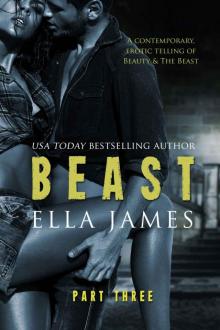 Beast, Part Three
Beast, Part Three Crown Jewels
Crown Jewels Red & Wolfe, Part II: An Erotic Fairy Tale
Red & Wolfe, Part II: An Erotic Fairy Tale Beast, Part One
Beast, Part One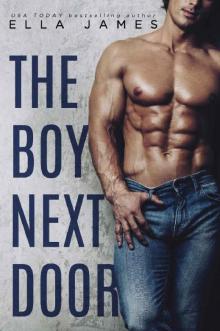 The Boy Next Door
The Boy Next Door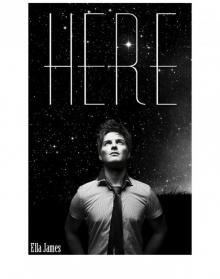 Here
Here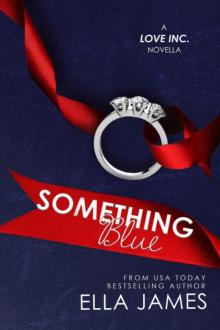 Something Blue
Something Blue Stolen
Stolen Sloth
Sloth Sexy Beast
Sexy Beast The Plan: A Standalone Off-Limits Romance
The Plan: A Standalone Off-Limits Romance Unmaking Marchant
Unmaking Marchant Red & Wolfe, Part III: An Erotic Fairy Tale
Red & Wolfe, Part III: An Erotic Fairy Tale Hansel, Part Two
Hansel, Part Two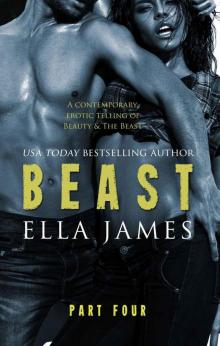 Beast, Part Four
Beast, Part Four Red & Wolfe, Part I: An Erotic Fairy Tale
Red & Wolfe, Part I: An Erotic Fairy Tale Hansel, Part One
Hansel, Part One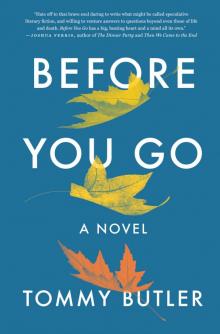 Before You Go
Before You Go Red & Wolfe, Part Four
Red & Wolfe, Part Four Vegas Royals: A Love Inc. Prequel
Vegas Royals: A Love Inc. Prequel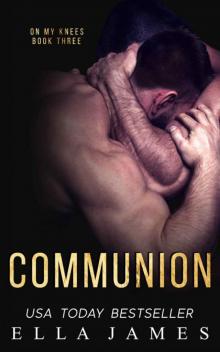 Communion (On My Knees Series Book 3)
Communion (On My Knees Series Book 3) Twin Flame: A Dark Heart Prequel (Dark Heart Duet)
Twin Flame: A Dark Heart Prequel (Dark Heart Duet) Stained
Stained Sloth: A Standalone Forbidden Romance
Sloth: A Standalone Forbidden Romance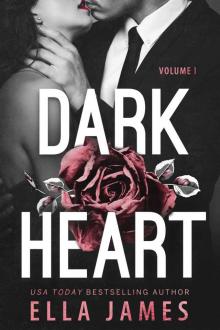 Dark Heart Volume 1: A Star-Crossed Mafia Romance (Dark Heart Duet)
Dark Heart Volume 1: A Star-Crossed Mafia Romance (Dark Heart Duet)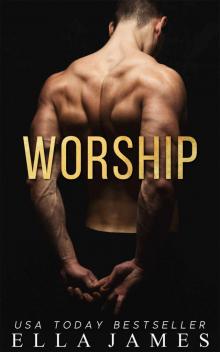 Worship (On My Knees Duet Book 1)
Worship (On My Knees Duet Book 1) Hate You Not: An Enemies to Lovers Romance
Hate You Not: An Enemies to Lovers Romance Taming Cross
Taming Cross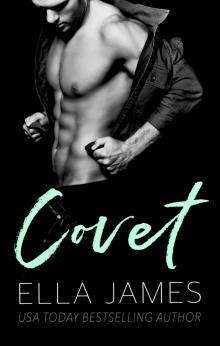 Covet : A Standalone Forbidden Romance
Covet : A Standalone Forbidden Romance Adore (On My Knees Duet Book 2)
Adore (On My Knees Duet Book 2)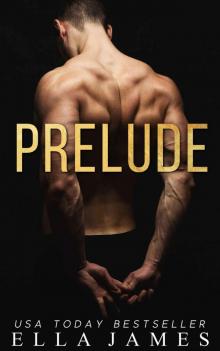 Prelude (On My Knees Duet)
Prelude (On My Knees Duet) My Heart for Yours: A Standalone Forbidden Romance
My Heart for Yours: A Standalone Forbidden Romance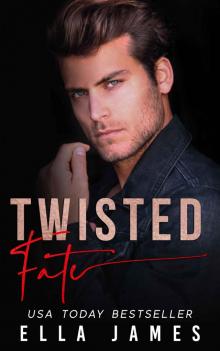 Twisted Fate: A Forbidden Romance
Twisted Fate: A Forbidden Romance